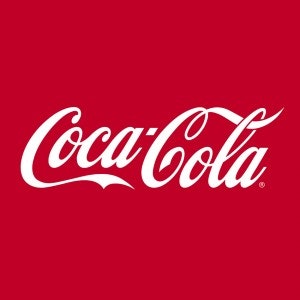
For over 125 years, we’ve been bringing people together. Today, we’d like people to come together on something that concerns all of us — obesity. The long-term health of our families, and the country is at stake. And as the nation’s leading beverage company, we can play an important role.
It raises the question — is Coke’s business, long seen as one of the safest and best in the world — at risk?
Coca-Cola’s empire
The Coca-Cola Company (NYSE:KO) has been one of Berkshire Hathaway Inc. (NYSE:BRK.B)’s largest holdings (in terms of publicly traded companies) for years, and it’s not hard to see why: Coke is the quintessential “Buffett company.”
Coke has an old, established business that isn’t particularly complex. It has a monopoly on its namesake beverage — a beverage that is consumed by millions of people every day. What’s more, as Buffett is quick to point out, a typical customer will consume several servings over the course of the day — each and every day.
The Coca-Cola Company (NYSE:KO) pays a regular dividend and generally trades in line with the market. In short, most money managers would probably identify Coke as one the safest stocks an investor could own, even if it doesn’t offer much in the way of growth.
A secular shift?
Of course, safety is often an illusion. And while it’s far too early to pronounce The Coca-Cola Company (NYSE:KO) a doomed company, there are some cracks beginning to form in its foundation.
As the nation becomes more aware of its obesity epidemic, Americans are increasingly exploring ways to improve their diets. And while diet plans can vary significantly, almost all of them have one thing in common: no soda!
In fact, Coke’s Coming Together ad seems aimed at rebuking these dietary challenges:
But beating obesity will take action by all of us, based on one simple, common sense, fact: all calories count. No matter where they come from. Including Coca-Cola, and everything else with calories. And if you eat and drink more calories than you burn off, you’ll gain weight.
It’s as if The Coca-Cola Company (NYSE:KO) is saying, don’t blame us that you’re fat! Don’t single out our products, all calories are equal!
While that may be the generally accepted belief, there is plenty of scientific debate. And most diets don’t operate under this premise — the Weight Watchers diet, for example, penalizes a follower more severely for drinking a can of Coke than they do for say, eating the equivalent amount of calories in fruit.
It appears that society is in general agreement on soda being a particularly worthless beverage. New York Mayor Bloomberg’s recent attempt to limit the size of soda servings is perfect testament; critics have pointed out the hypocrisy — why not target fast food or candy? Evidently Bloomberg believed soda was the one item everyone could get behind.
To be fair, The Coca-Cola Company (NYSE:KO) has an answer here: Diet Coke and Coke Zero. These zero-calorie offerings are touted by the company as being the obvious answer to the health question, but here they fall short. Most diets discourage diet soda, with some people alleging that it can act as appetite stimulant.
The rise of Whole Foods and going organic
Beyond a changing diet, Coke is threatened by the growing popularity of organic food.
